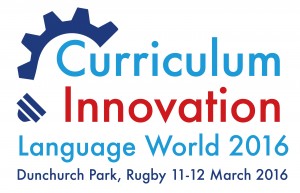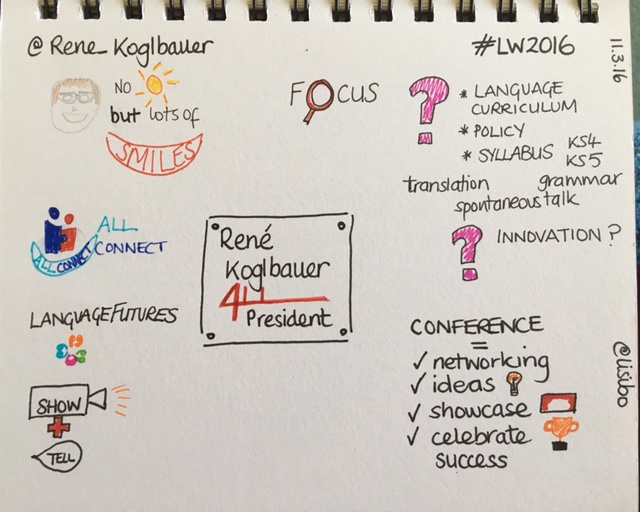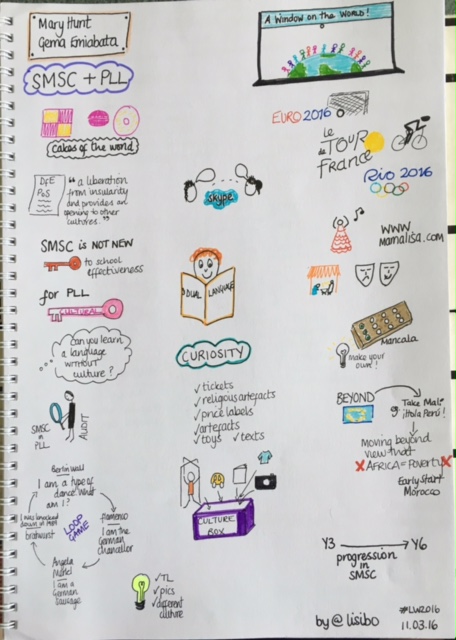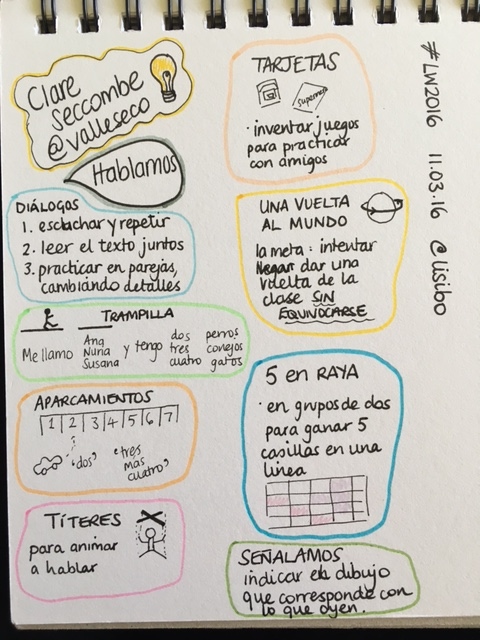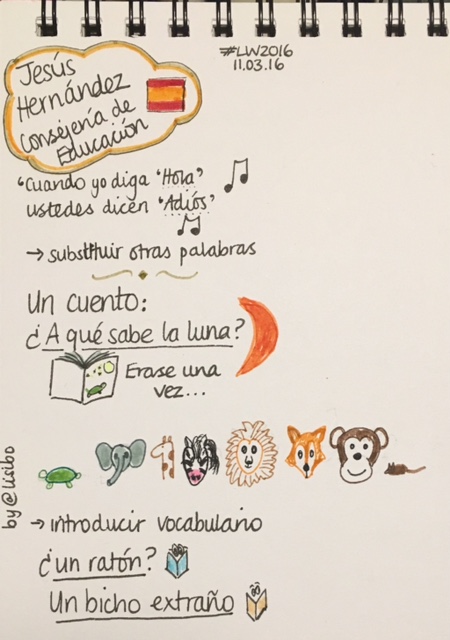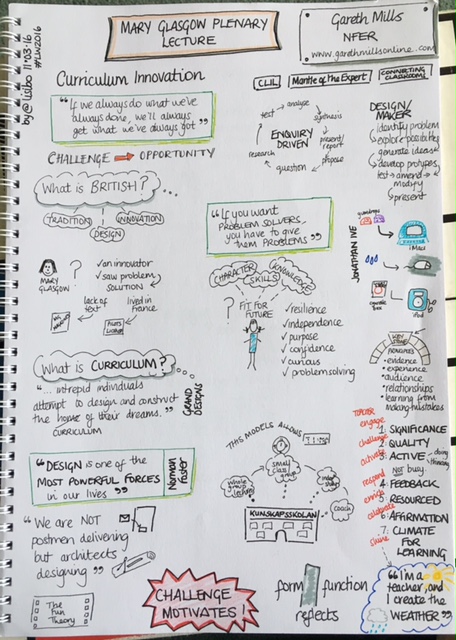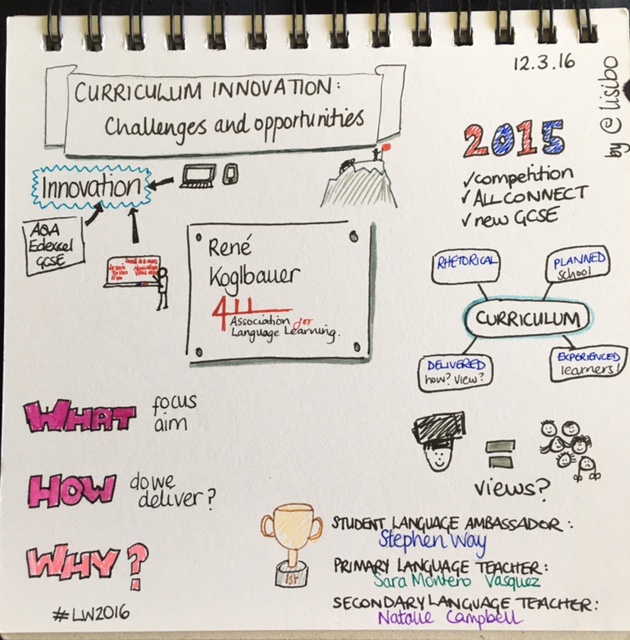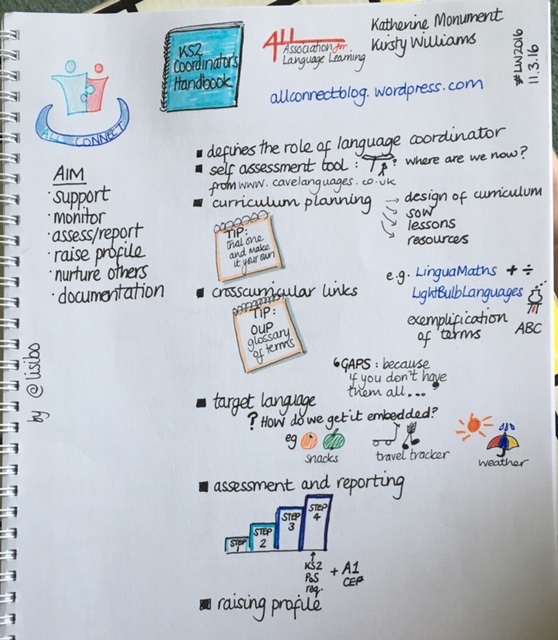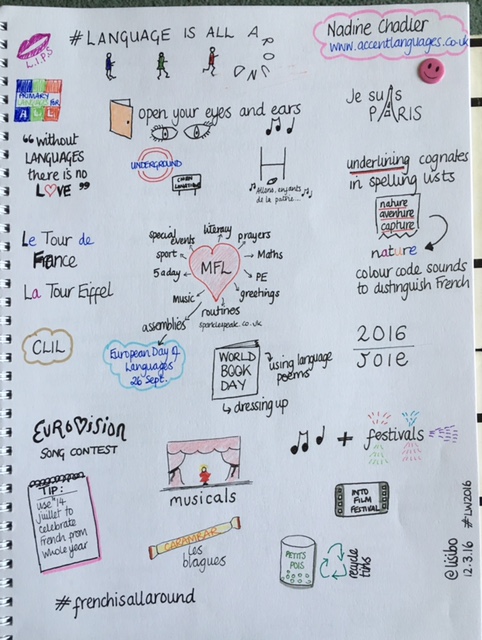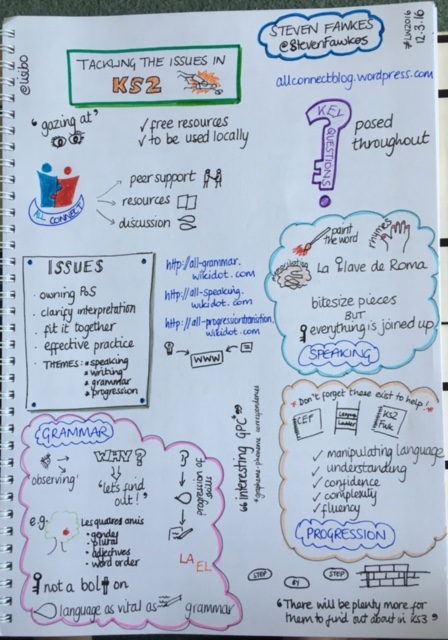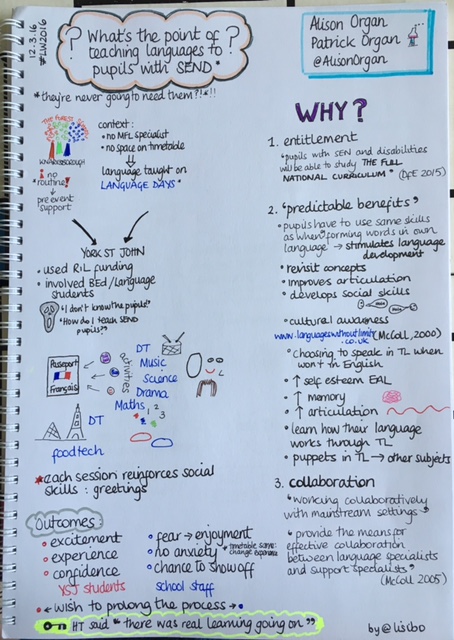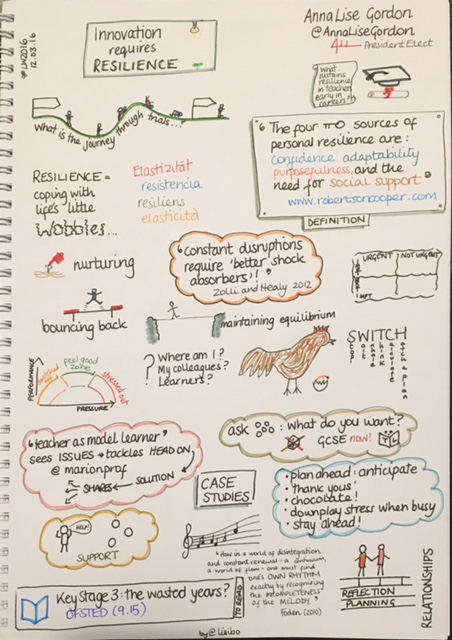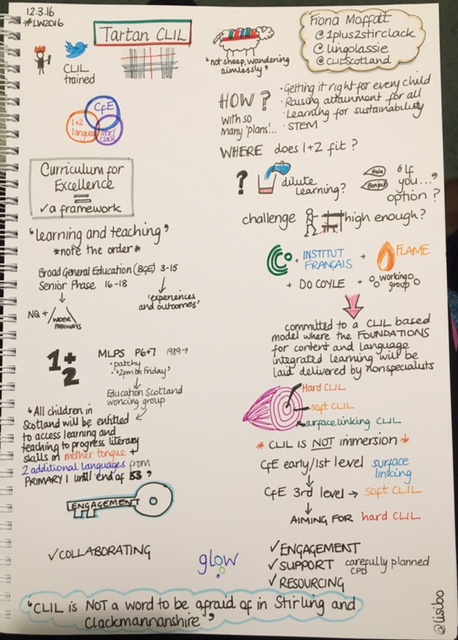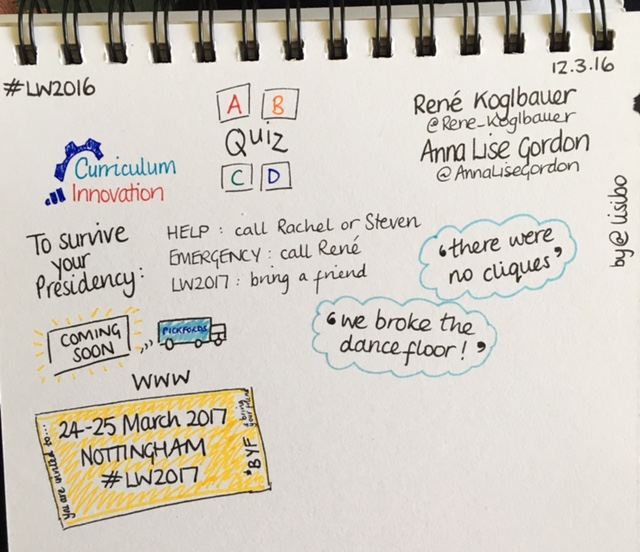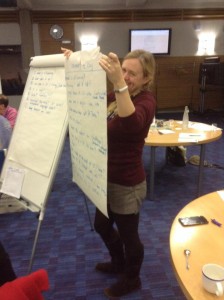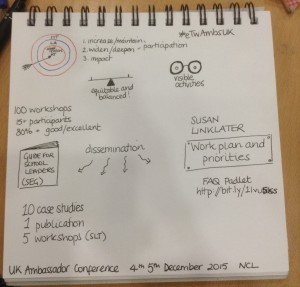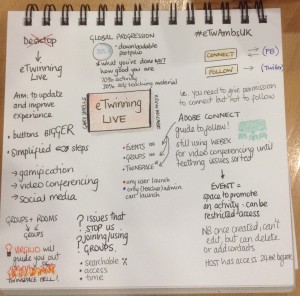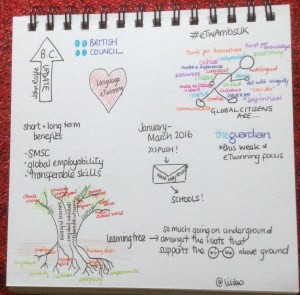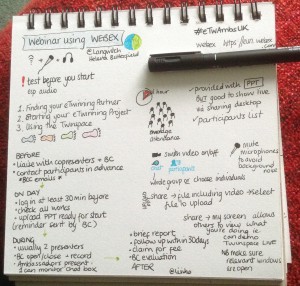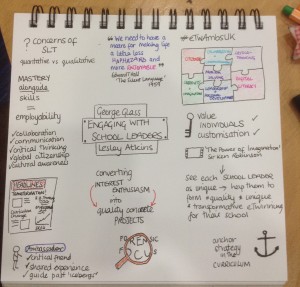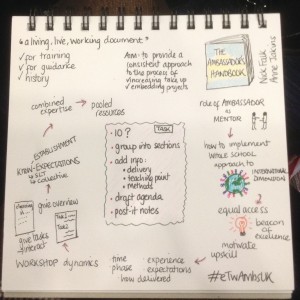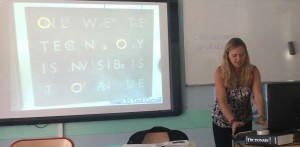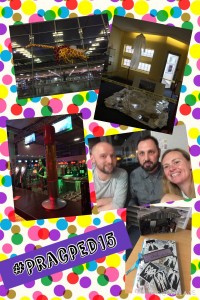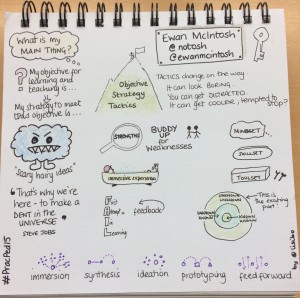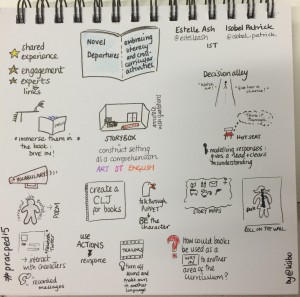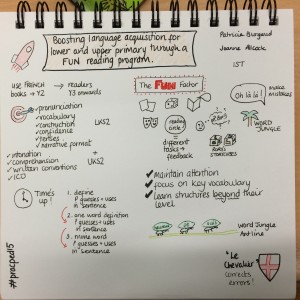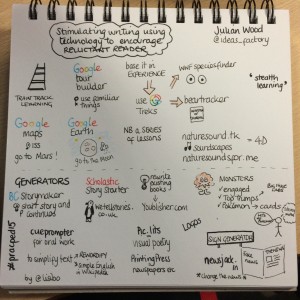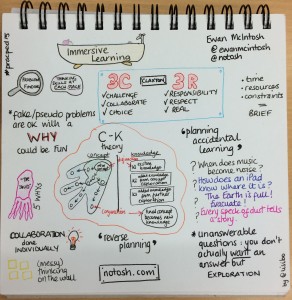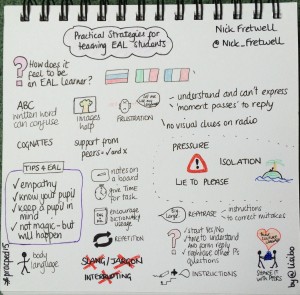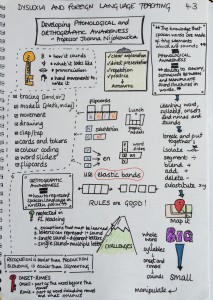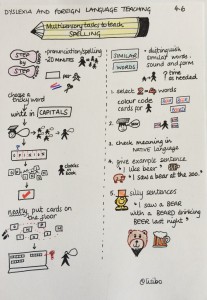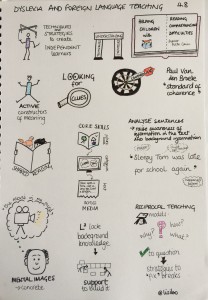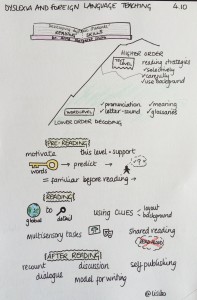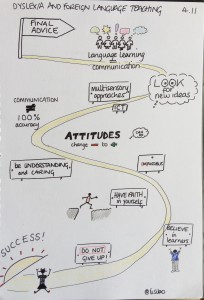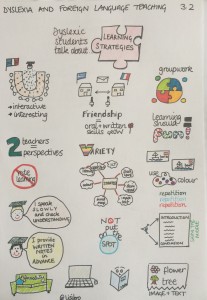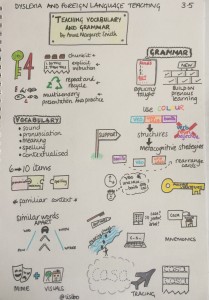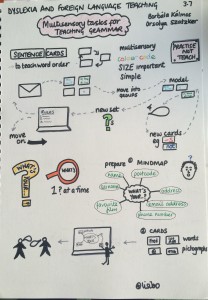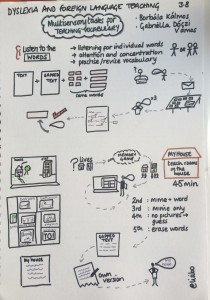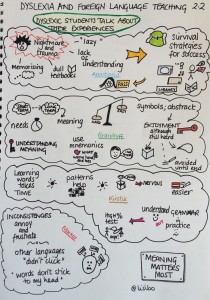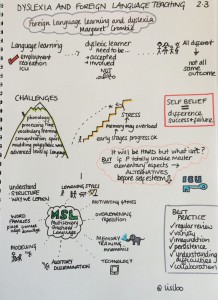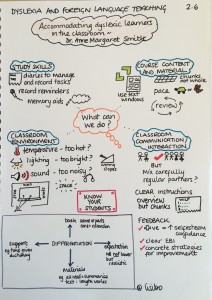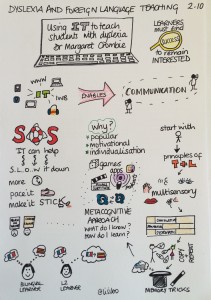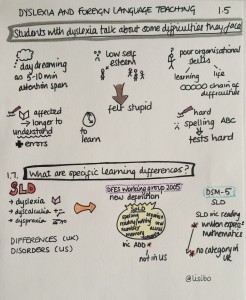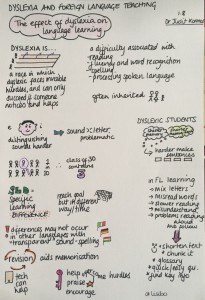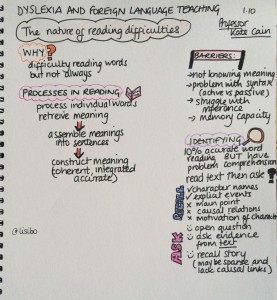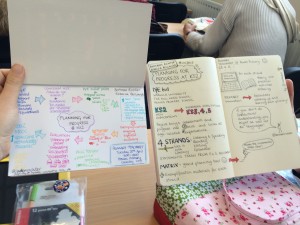
Last Thursday I headed to Newcastle for ALL Connected, the title of this year’s Language World conference taking place on 20-21st March at Newcastle University. I look forward to LW each year as it’s a conference that offers lots of ideas but also lots to challenge my “little grey cells” and make me think.
This year I decided to replace my normal note taking with Sketchnoting as started at #ililc5. I’d tried using Paper app on my iPad there and found it quite tricky to use to the extent that it was distracting me from the session content. I’ll persevere and practice further but for Language World I choose a different tool – the notebook and pen! Actually, notebook, pens and pencils! I’m a strong believer in choosing the correct tool for the job, be that an iPad, a pencil and pen or a slate and chalk, and this combination allowed me to write more easily, select colour at will and, most importantly, focus on what was being said rather than worrying about zooming in and out or accidentally drawing whilst trying to make the toolbar reappear!
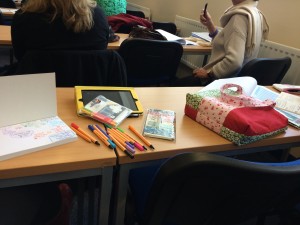
Below are my sketch notes created over the two days. I did them all ‘live’ – no retouching afterwards apart from one on which I’d made a mistake with someone’s name and felt I really should correct it as she’d won an award and deserved it!
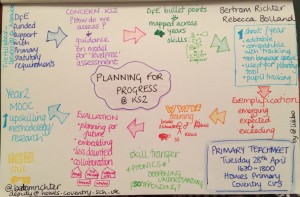
Bertram Richter and Rebecca Bolland – Planning for Progress @KS2

Vicky Cooke – Teaching reading in KS2: leading learners towards independence
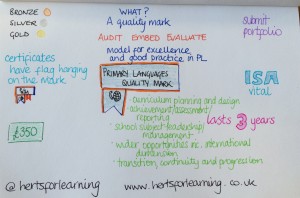
Jackie Rayment – Primary Languages Quality Mark
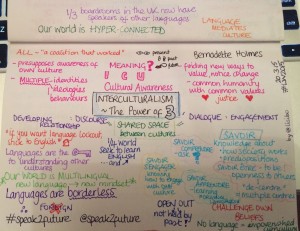
Bernadette Holmes – Interculturalism: The Power of 3
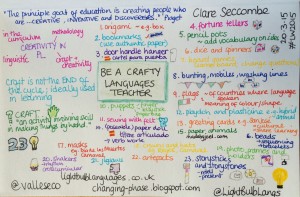
Clare Seccombe – Be a crafty languages teacher
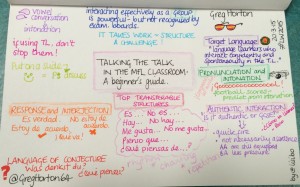
Greg Horton – Talking the talk in the MFL Classroom
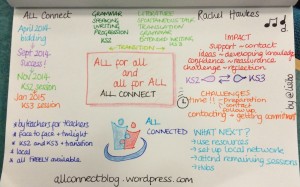
Rachel Hawkes – ALL for all and all for ALL: ALL CONNECT
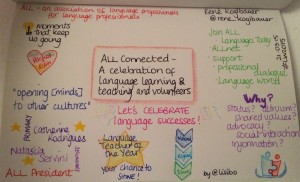
René Koglbauer – ALL Connected: a celebration of language learning & teaching and volunteers.
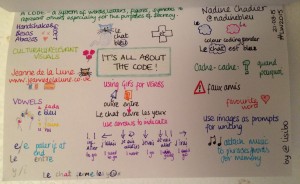
Nadine Chadier – It’s all about the code
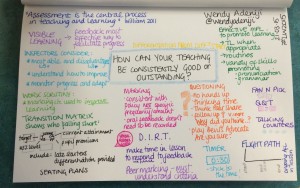
Wendy Adeniji – How can your teaching be consistently good or outstanding?
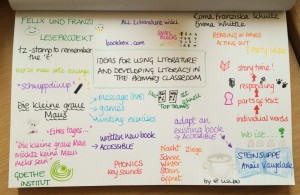
Roma Franziska Schultz and Emma Whittle – Ideas for using literature and developing literacy in the Primary Classroom
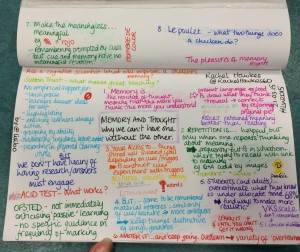
Rachel Hawkes – Memory and thought: why we can’t have one without the other.
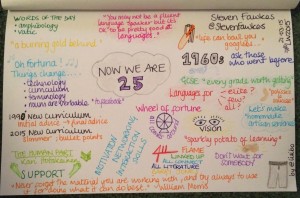
Steven Fawkes – Now we are 25
Looking back on them, it’s amazing how much more I can recall about the sessions than I would following my more traditional note taking; my page was smaller than A5 so I had to carefully consider each word/phrase I wrote or picture I drew. I successfully kept to one page per session (45-50minutes) apart from two sessions where there was just too much to fit onto one page.
I’m still learning and developing my own style and I certainly need to work on my drawings (there’s a tortoise on one that looks like a sheep!) but I’m pleased with the way it’s going. I intend to keep working on it, and I’ll persevere with my iPad but I’ll save that for times when there’s no ‘time pressure.’
If you want to see someone else’s take on many of the same sessions as sketch notes, have a look at Clare Seccombe’s post that includes hers. And you can see many of the actual presentations by clicking on Friday programme or Saturday programme.
